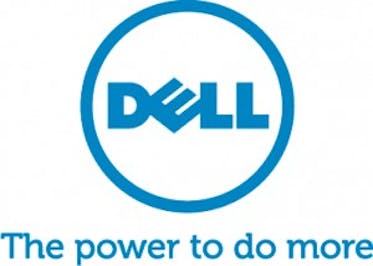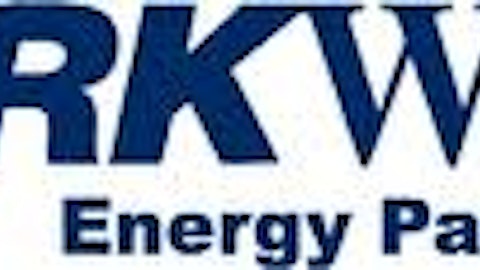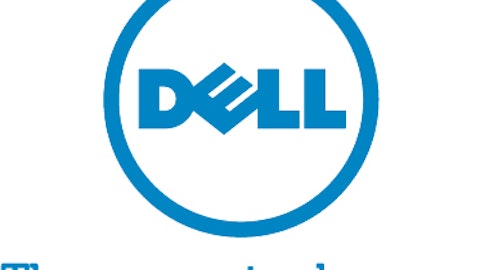
On July 18, Dell Inc. (NASDAQ:DELL) shareholders will vote on the two offers available to them with regard to the future of the company. Founder Michael Dell and a private Equity firm, Silver Lake Partners, offered $13.65 per share to the shareholders of the company while activist investor Carl Icahn and Southeastern Asset Management have proposed an offer of $14 a share.
Michael Dell’s offer involves taking the company private, while Icahn and Southeastern Asset Management want the company to remain public. Michael Dell claims that taking the company private will provide the best chance for reinventing it, while Carl Icahn believes that can still be done while the company remains public.
Icahn’s offer will result in a $22.4 billion takeover, but with some 700 million shares still available to other shareholders. On the other hand,Michael Dell’s offer will result in a complete takeover with some $24.4 billion changing hands, and the company going private. Carl Icahn’s offer seems to be the better of the two, but based on his previous offers, which yielded nothing, shareholders are questioning his commitment.
Nonetheless, that question is no longer a concern after the company secured a $5.2 billion credit facility from Jefferies & Co., which depicts commitment from the activist investor. Michael Dell’s offer on the other hand, would leave the shareholders with nothing to play for in the market. Additionally, it offers a smaller premium on the current price than Icahn’s offer.
When two elephants fight, the grass suffers
We often say that when two elephants fight, the grass suffers. The battle between hedge fund manager Carl Icahn and Dell Inc. (NASDAQ:DELL) founder Michael Dell is bound to make some shareholders suffer. Icahn believes that Michael Dell’s valuation of the company does not present the actual value. On the other hand, analysts have questioned Icahn’s valuation and commitment with some claiming that he might be trying to drive the stock’s price high, before ditching it.
Carl Icahn’s offer to acquire 1.1 billion shares will burn all the $7.5 billion cash on the balance sheet, and $2.9 billion worth of receivables sales. There will be some $5.2 billion additional debt on the balance sheet as well. This provides a worrying situation for the shareholders of the 700 million shares.
This confirms why the shareholders of the company have been questioning Icahn’s financing sources. Jefferies & Co. the financier of the $5.2 billion recently reported 34% decline in profits, which only adds salt to Icahn’s offer.Dell Inc. (NASDAQ:DELL)’s declining profit margins and slowing business does not help the current situation either.
Competition
Dell Inc. (NASDAQ:DELL) offers personal computing devices, including desktop personal computers, notebooks, and tablets. The company is also involved in the provision of network solutions and sale of peripherals, including monitors, printers, and projectors among others. Its main competitors include Hewlett-Packard Company (NYSE:HPQ), and Lenovo Group Limited (ADR) (OTCMKTS:LNVGY).
All three companies continue to report diminishing sales in PC business, as the shift to hand-held devices continues to romp. Some of the companies are now shifting their focus from PC business to other lines of business, like software and handheld devices.
Hewlett-Packard Company (NYSE:HPQ)’s PC sales from the most recent quarter fell 20%, while its printing unit was down 1% from the same quarter a year ago. Hewlett-Packard Company (NYSE:HPQ) remains the number one PC vendor, but continues to face stiff competition from Lenovo Group Limited (ADR) (OTCMKTS:LNVGY) and Dell Inc. (NASDAQ:DELL), in a market that demands a paradigm shift from the traditional personal computers. Lenovo Group Limited (ADR) (OTCMKTS:LNVGY) acquired the International Business Machines Corp. (NYSE:IBM) PC unit in 2004 for $1.75 billion in 2004. International Business Machines Corp. (NYSE:IBM)’s decision to sell its PC unit could prove to be one of its best, especially now that it is also robbing HP of a huge chunk of the computer server business.
International Business Machines Corp. (NYSE:IBM) has since become a great consulting firm, something Michael Dell sees as the future of Dell Inc. (NASDAQ:DELL), and a goal he wants to achieve by taking the company private. On the other hand, Carl Icahn believes that there is tremendous value in the company’s investments in cloud-computing, and believes that this value can be unleashed while still being a public company. The PC industry is not going to turnaround overnight.
Performance and valuation
Dell’s most recent earnings fell by 79.5%, while revenue was down 2.4% from the same quarter last year. The company’s profit margins stand at 3.3% compared to Lenovo’s 1.88%, while HP’s net loss margin is pegged at 11.6%.
However, HP’s gross margin superior to Dell’s and Lenovo’s, at 24%, compared to 21% and 12% respectively. HP’s operating margin is still the best among the three companies at 8%, compared to Dell’s 5% and Lenovo’s 2%.
At a price of $13.34, Dell trades at a Price/Earnings (P/E) multiple of 12.61 times its earnings. The forward P/E of 10.76 is indicative of the company’s declining appeal to investors, as uncertainty over its future continues to grow. A negative earnings growth rate for the most recent quarter does not help the valuation, as investors wait for the July 18, shareholder vote.
The bottom line
With Dell’s PC business diminishing along with the industry, there is definitely a need for change. However, the manner in which this change is being implemented worries me. The two rival parties pushing for a takeover seem to have some hidden interest, aside from just turning the company around. For instance, Michael Dell’s offer seems to discount the benefits associated with the company’s investment in cloud business, while Icahn is accused of lack of commitment. The company’s fundamentals are not the best either, among its rivals.
The article Dell: Stay as Far Away as Possible originally appeared on Fool.com is written by Nicholas Kitonyi.
Nicholas Kitonyi has no position in any stocks mentioned. The Motley Fool has no position in any of the stocks mentioned. Nicholas is a member of The Motley Fool Blog Network — entries represent the personal opinion of the blogger and are not formally edited.
Copyright © 1995 – 2013 The Motley Fool, LLC. All rights reserved. The Motley Fool has a disclosure policy.





